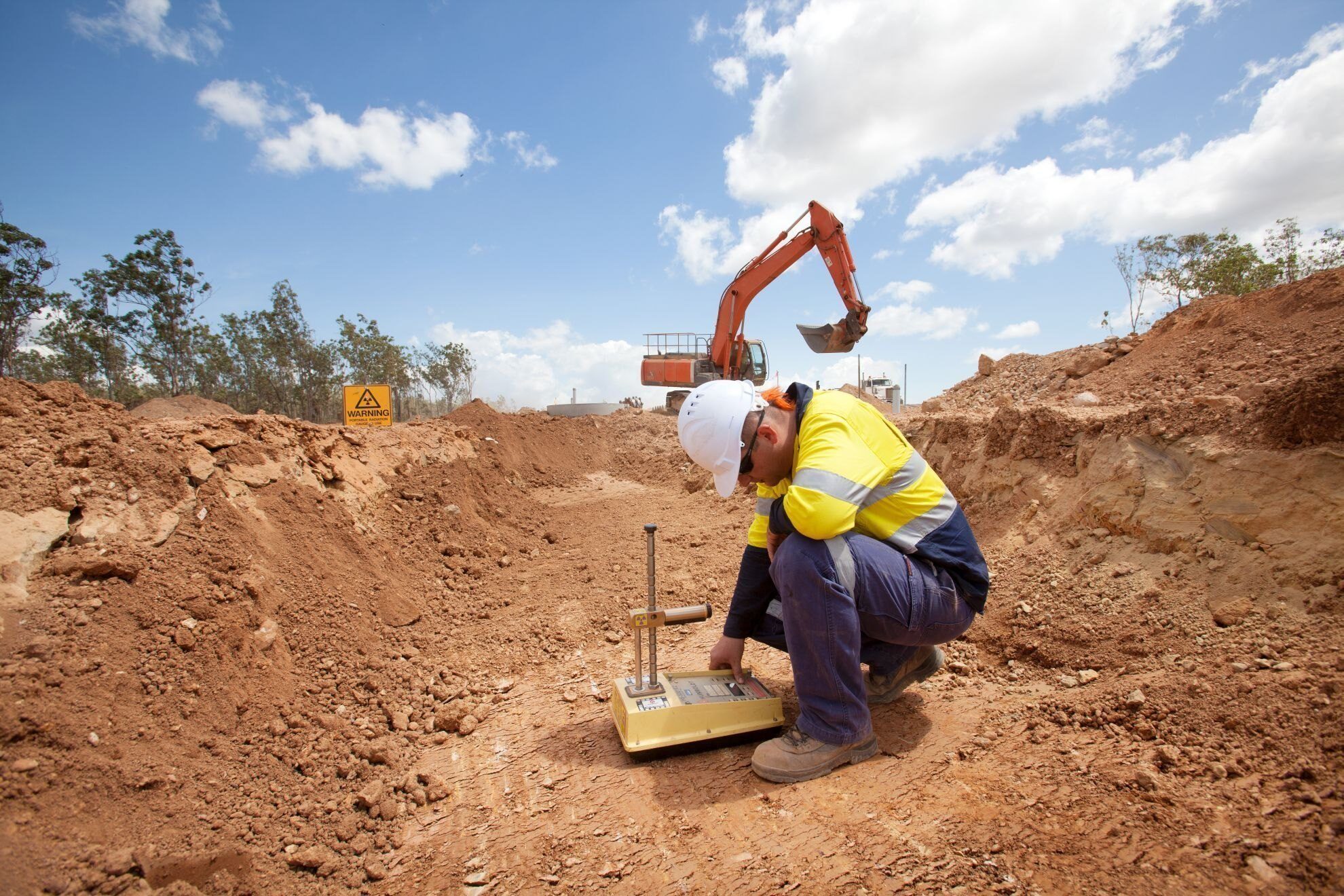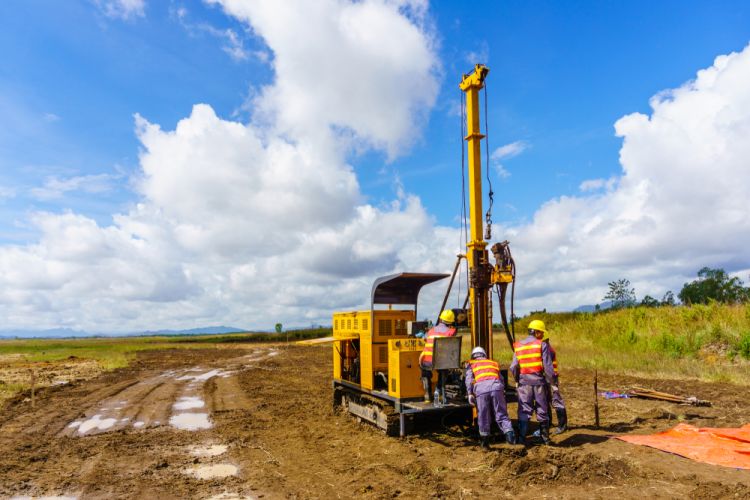Specialized Geotechnical Engineering Solutions Fundamentals Explained
Specialized Geotechnical Engineering Solutions Fundamentals Explained
Blog Article
More About Specialized Geotechnical Engineering Solutions
Table of Contents6 Simple Techniques For Specialized Geotechnical Engineering SolutionsHow Specialized Geotechnical Engineering Solutions can Save You Time, Stress, and Money.The 8-Minute Rule for Specialized Geotechnical Engineering SolutionsSpecialized Geotechnical Engineering Solutions Can Be Fun For Anyone
They perform website investigations, gather samples, carry out laboratory examinations, and evaluate information to evaluate the viability of the ground for building and construction jobs. Based upon their searchings for, geotechnical engineers supply referrals for foundation design, slope security, maintaining frameworks, and reduction of geotechnical risks. They work together with other experts, such as engineers, structural designers, and construction teams, to guarantee that geotechnical factors to consider are integrated right into the general project design and implementation.
Structure Layout: Geotechnical designers play a critical duty in making foundations that can securely sustain the designated structure. They analyze the soil conditions and tons requirements to determine the suitable foundation kind, such as superficial structures (e.g., grounds), deep foundations (e.g., piles), or specialized methods like dirt enhancement. They think about aspects such as negotiation limitations, bearing capacity, and soil-structure interaction to create optimal structure designs.
Some Known Incorrect Statements About Specialized Geotechnical Engineering Solutions
Below are some kinds of geotechnical designers: Foundation Engineer: Foundation engineers concentrate on designing and assessing structures for frameworks - Specialized Geotechnical Engineering Solutions. They assess the soil conditions, load requirements, and site qualities to identify the most ideal structure type and design, such as superficial structures, deep foundations, or specialized techniques like heap foundations
They carry out field screening, gather samples, and analyze the collected information to identify the dirt homes, geologic formations, and groundwater problems at a website. Geotechnical Instrumentation Engineer: Geotechnical instrumentation engineers concentrate on surveillance and gauging the habits of soil, rock, and frameworks. They install and preserve instrumentation systems that keep track of variables such as dirt settlement, groundwater degrees, slope activities, and structural displacements to examine efficiency and offer very early warnings of potential problems.
In the workplace atmosphere, geotechnical designers use specialized software devices to perform estimations, produce layouts, and examine data. Specialized Geotechnical Engineering Solutions. They prepare records, testimonial job specifications, interact with customers and group participants, and coordinate task tasks. The workplace setup gives a helpful setting for research study, analysis, and collaboration with other specialists associated with the job
They often check out task websites to perform website investigations, evaluate geotechnical problems, and collect information for analysis. These visits involve taking a trip to various places, sometimes in remote or tough terrains. Geotechnical engineers may carry out dirt tasting, conduct examinations, and screen construction activities to make certain that the geotechnical elements of the job are being executed properly.
The Greatest Guide To Specialized Geotechnical Engineering Solutions
Geotechnical designers also operate in specialized geotechnical laboratories. In these facilities, they conduct experiments, carry out tests on soil and rock samples, and evaluate the engineering homes of the products. Geotechnical research laboratory designers work extensively in these environments, handling testing devices, operating instruments, and taping information. They team up with various other research laboratory team to make sure exact and dependable testing results.
Maintaining Wall surfaces: Developing walls that hold back dirt to protect against landslides and give security on sloped surfaces. Embankments and Earthworks: Designing embankments for roadways, railways, and dams to guarantee they remain secure under tension. The mining industry depends heavily on geotechnical engineering to ensure the security and longevity of its operations.
With this in mind, we have created our program to prepare students for success. The Geotechnical Design program at the University of Delaware supplies possibilities for sophisticated research study and research study in: Dirt and rock auto mechanics Soil-structure communication Constitutive modeling Computational geomechanics Structure and planet structures design Ground improvement Incline stability and landslide stablizing Liquefaction of soils and earthquake design Lab characterization of geomaterials and dirt reinforcement Ecological geotechnics Provided the solid need for improvement to our nation's infrastructurethe American Culture of Civil Designers gave the U.S.
Geotechnical engineering is a branch of civil design; nevertheless, it includes utilizing scientific approaches and principles to collect and translate the physical properties of the ground. Geotechnical engineers are entailed in all phases of the layout of frameworks, from idea to building and construction. Their job is necessary in the style and preparation procedure as they assess the honesty of soil, clay, silt, sand, and rock, before building and construction starting.
The Specialized Geotechnical Engineering Solutions Ideas
This is complied with by a ground investigation based upon the findings of the workdesk research and includes test pitting and tasting to uncover any kind of potential concerns. Geotechnical engineers function within multidisciplinary groups, supported by intermediate and jr engineers in addition to by CAD professionals. As a senior geotechnical designer on a hydro plant project, jobs might include taking part in technical reviews (e.g., peer reviews), tailings dam examinations, dam safety and security reviews, and various other researches associated with the style and building and construction dig this of mine waste facilities.
While some specialists are experts entirely in geotechnics, others might function under titles like engineering geologist or ground designer within comparable capabilities. As This Site a geotechnical designer, you'll need to: develop and maintain connections with customers and various other professionals entailed in the site, throughout each projectmaintain security criteria on site be mindful of price implications when you make recommendationsstudy geological maps and aerial photographs from a range of sources and from different time periodsexamine building intends to see just how feasible they are based on your understanding of the siteinvestigate risks or geological risks for the sitesearch for ecologically sensitive functions, such as garbage dump begin to establish accurate and interpretive ground modelsplan field investigationsdrill and analyse samples of bedrock, soil, groundwater and extra products manage various other experts on sitesolve technological problems as they develop, such as unanticipated frameworks at drill sitesmonitor problems throughout and after building and construction to ensure frameworks are secure in the brief and long termadd data collected on site to your first researchcreate geotechnical estimations, illustrations, and 2 or three-dimensional computer system versions analyzing the datamake referrals concerning the recommended use the site.
There are lots of chances to satisfy brand-new individuals, as you'll collaborate with a series of experts at every site. The job can be difficult as you may be accountable for the security of others while on website. There is additionally a high degree of monetary duty, as the recommendations you make can have serious cost Source effects.

Report this page